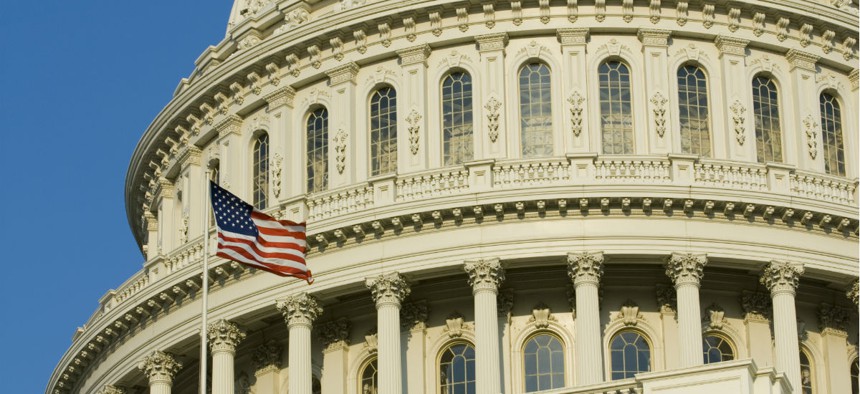A Guide to Your Pay and Benefits During a Government Shutdown, and More
A weekly roundup of pay and benefits news.
When lawmakers return to Washington next week, they will have only a few days to approve a spending measure in order to avert a government shutdown beginning April 29.
It remains unclear whether Congress and the White House can come to an agreement on a continuing resolution to fund the government in time, or if they will allow appropriations to lapse. Here’s what federal workers can expect in the realm of pay and benefits if the government closes, based on guidance from the Office of Personnel Management from the last shutdown in October 2013.
Salaries: Agencies are required to pay employees deemed essential or exempt from the shutdown, although that money won’t arrive until after the government reopens. Furloughed employees have no guarantee that they will be compensated at the end of the shutdown, although Congress traditionally has issued back pay. Sen. Ben Cardin, D-Md., already has introduced legislation to ensure all federal workers are paid swiftly if Congress misses its deadline and agencies close.
Bonuses: Agencies can award performance bonuses during a shutdown, but they won’t be paid until after the government reopens.
Unemployment: Federal workers who are furloughed are eligible for unemployment compensation in some states. But a word of caution: in 2013, many employees had to return the money when Congress approved their back pay.
Health care: Furloughed employees are still covered under the Federal Employee Health Benefits Program during a government shutdown. Premiums will accrue over the course of a shutdown and then be taken out of employees’ first paycheck after the government reopens. Employees will not be able to cancel their coverage when the government closed. But in the case of the Federal Employees Dental and Vision Insurance Programs, if employees are furloughed for two consecutive pay periods, then they will be billed via mail in order to maintain coverage.
Retirement benefits: Retirees in the Civil Service Retirement System and the Federal Employees Retirement System will still receive their benefits during a shutdown. Workers enrolled in the Thrift Savings Plan—and their agencies—will not contribute to their accounts until pay resumes after a shutdown.
Leave: Workers cannot use paid leave instead of unpaid furloughs if the government is closed. An employee’s already scheduled leave or sick days would be canceled if a shutdown commences.
Meanwhile, First Command Financial Services, which works with government employees and military members, announced plans to help its clients through the potential shutdown. First Command Bank will offer zero-interest payroll advances so that affected employees don’t see a gap in income.
The company also said it would work with borrowers on loan assistance measures, allow for penalty-free C.D. withdrawals and offer lines of credit and flexibility on credit card accounts, including increased credit limits and monthly payment deferments. First Command also will waive cash advance fees during a shutdown.
In news not related to brinkmanship in Washington, a federal court earlier this month affirmed OPM’s nine-month buffer period for survivor benefits under the Federal Employees Retirement System.
Amanda Becker had appealed a decision to deny her survivor benefits through her late husband, a former federal employee, and attempted to gain information about any other instances where OPM may have waived the requirement that a couple be married for at least nine months before survivor benefits kick in.
But the U.S. Court of Appeals for the Federal Circuit sided with OPM, finding that the rule does not violate the Constitution “because there is a rational basis for Congress to use an imprecise set of criteria as a proxy to ensure that the marriage was entered into for reasons other than the desire to shortly acquire benefits.”








